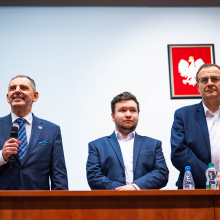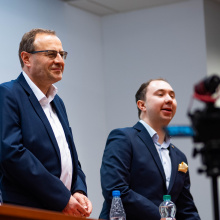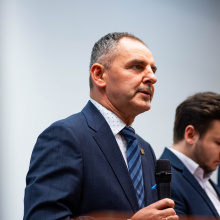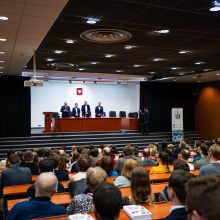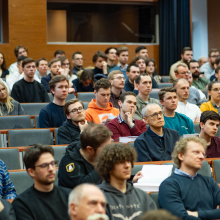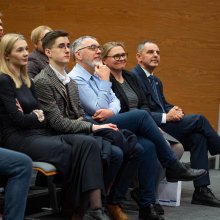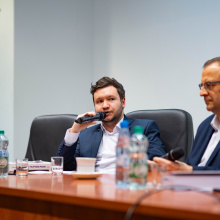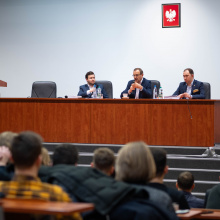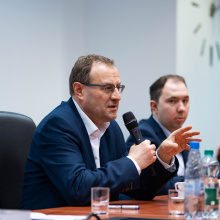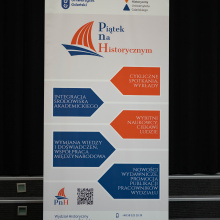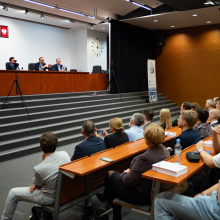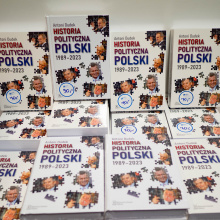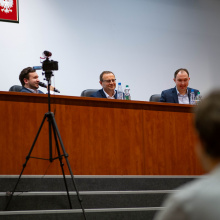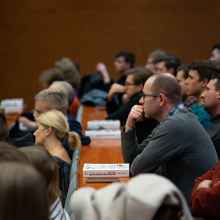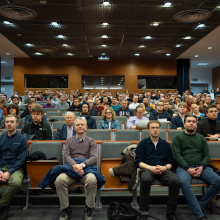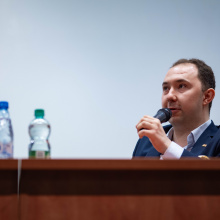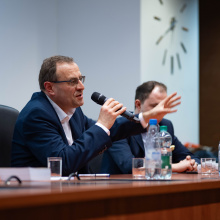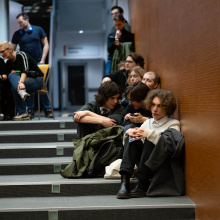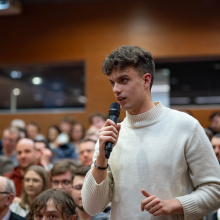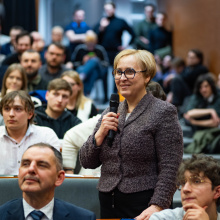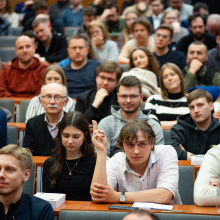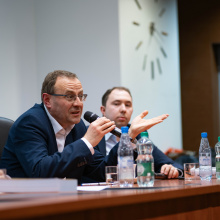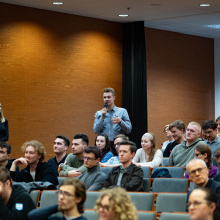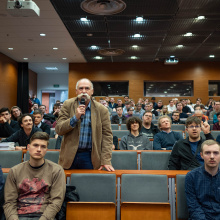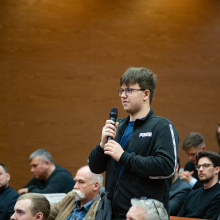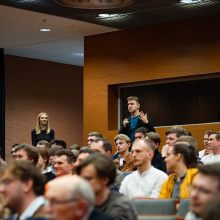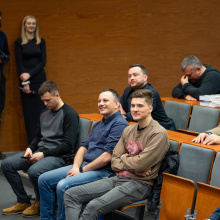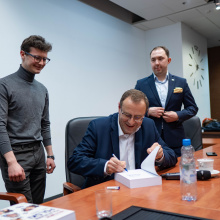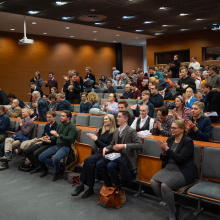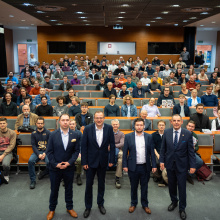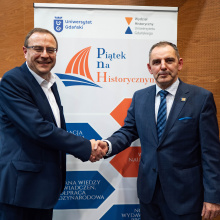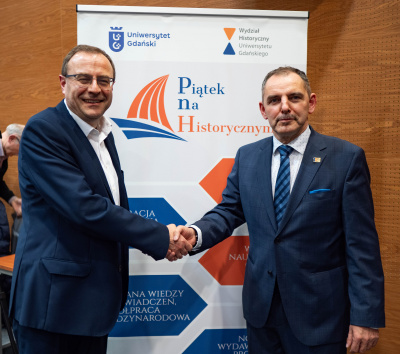
the core curriculum? Meeting with prof. Antoni Dudek
Should secondary school students learn about the elections of June 1989 and the first free presidential election in the Republic of Poland? This is the view of prof. dr hab. Antoni Dudek of Cardinal Stefan Wyszyński University in Warsaw, whose YouTub channel with lectures on contemporary history is quite popular. On March 23, at the invitation of the Faculty of History of the University of Gdańsk, the historian and YouTuber met with the academic community of our university in the auditorium of the University of Gdańsk Library.
The first part of the meeting, devoted to the introduction of the history of the Third RP to the core curriculum, was hosted by Michał Piłat of the Student Scientific Circle of Historians UG.
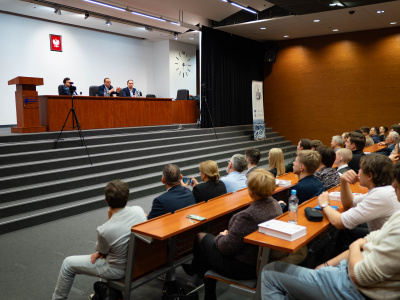
‘The Third Republic is still in progress; it began around 1989 or 1991. Thus, we are dealing with an open historical epoch, unlike the Polish People's Republic, the Second Republic or the First Republic. On the other hand, does this mean that we have to wait for the collapse of the Third Republic to be covered by historical research? What would this collapse consist of?,’ said prof. dr hab. Antoni Dudek. ‘Let us stick to formal criteria. We have a thirty-year archival period, which has just ceased to include documents from the 1990s, which means that we can start researching the beginnings of the Third Republic according to all the rules of the historical workshop.’
The guest from Cardinal Stefan Wyszynski University talked, among other things, about the differences between the work of a historian and that of a political scientist, and about the increasing group of young people who decide to study outside Poland. As one of the proofs of the need to teach modern history, prof. Antoni Dudek pointed to the huge interest in this period among young people, which can be seen, for example, on the Dudek o Historii channel.
The second part of the conversation, on current political events, was led by Mateusz Janota from the Przymorze Wielkie District Council. Topics discussed included the rebuilding of the Saxon Palace, the function of the Institute of National Remembrance, and the biggest challenges facing Poland. In the case of the latter question, prof. Antoni Dudek mentioned Russian aggression and the optimal implementation and renegotiation of commitments to the European Union related to climate policy as the greatest difficulties facing our country.
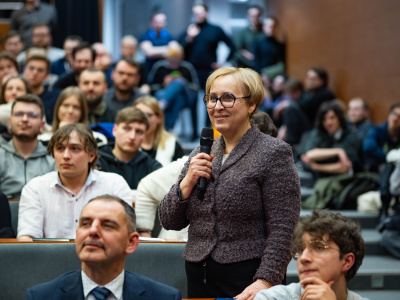
prof. dr hab. Sylwia Rodziewicz-Motowidło
A large part of the meeting was devoted to questions from the audience. Prof. dr hab. Sylwia Rodziewicz-Motowidło from the Faculty of Chemistry UG asked about the combination of the profession of scientist and YouTuber. The Department of History guest strongly encouraged all researchers to try their hand at new media; she also pointed out the greater visual potential of the chemical sciences compared to history.
At the end of the meeting, a prize draw was held among the participants in the form of three copies of prof. Antoni Dudek's latest book entitled Political History of Poland 1989-2023. The prizes were presented by the author himself and the Dean of the Faculty of History, dr hab. Arkadiusz Janicki, prof. UG.
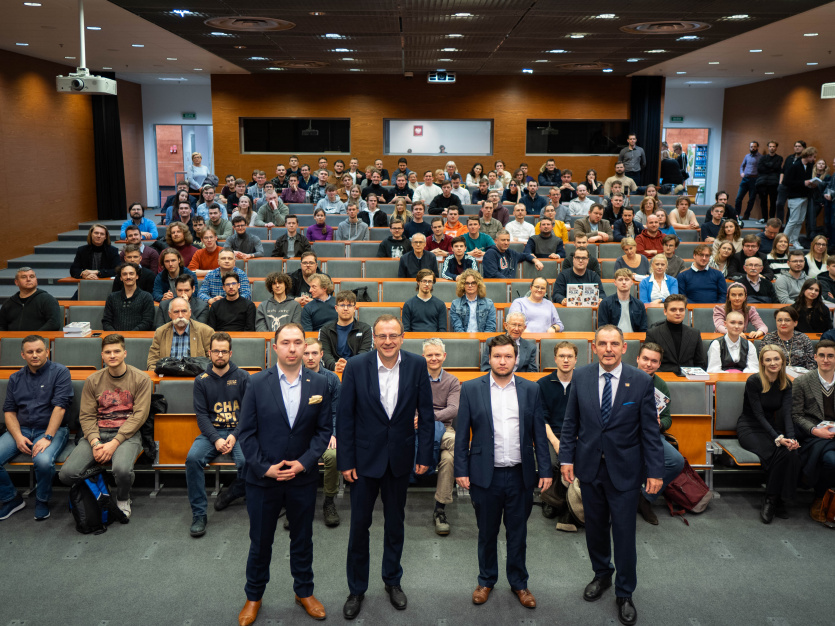
photo Marcel Jakubowski

